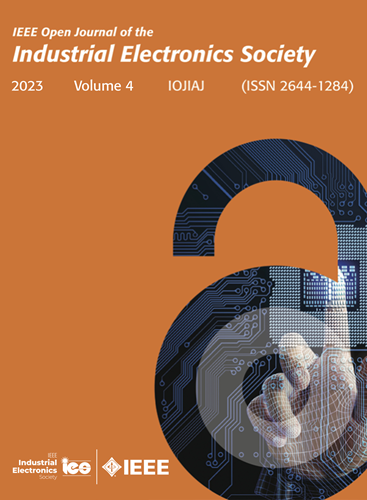基于正交锁相自编码器和圆谐波分解的无模型多相交流信号降阶方法
IF 7.2
1区 工程技术
Q1 AUTOMATION & CONTROL SYSTEMS
引用次数: 0
摘要
在多相交流系统中,一般采用参考系变换方法,将系统的高维交流信号简化为低维直流信号。经典方法,如Clark/Park变换,用于模型已知的平衡系统,但不适用于可能包含不平衡成分的模型未知系统。为了解决这个问题,本文提出了一种无模型方法,该方法可以将平衡和不平衡多相交流信号降阶为直流信号,而无需获得任何先前的模型知识。该方法遵循低秩稀疏性原则,由两部分组成:1)设计锁相正交自编码器,将多相交流信号转换为两相正交交流信号;2)引入圆谐波分解,进一步将两相正交交流信号简化为若干直流常数值。在实际模型未知系统上验证了所提方法的有效性,实验结果也表明所提方法有利于发现系统的一些潜在模式,有助于模型未知系统的深入研究。对比研究表明,该方法在模型未知场景下的可解释性、信息完整性和可扩展性等方面优于经典方法。本文章由计算机程序翻译,如有差异,请以英文原文为准。
Model-Free Multiphase AC Signals Downscaling Method Using Orthogonal Phase-Lock Autoencoder and Circular Harmonic Decomposition
Reference frame transformation methods are generally introduced in multiphase ac systems, so as to simplify system's high dimensional ac signals into low dimensional dc ones. Classical methods, such as Clark/Park transformations, are used in balanced systems whose models are known, but not suitable for model-unknown systems which may contain unbalanced components. To address this issue, this article proposes a model-free method, that can downscale both balanced and unbalanced multiphase ac signals into dc ones, without any access to prior model knowledge. The proposed method follows the principles of low rank and sparsity, and consists of two components: 1) a phase-lock orthogonal autoencoder is designed, to transform multiphase ac signals into two-phase orthogonal ac signals; 2) a circular harmonic decomposition is introduced, to further simplify two-phase orthogonal ac signals into some dc constant values. The effectiveness of the proposed method is validated on a real-world model-unknown system, and the experimental results also indicate that the proposed method benefits of discovering some potential patterns of the system, which is helpful for an in-depth study of model-unknown systems. Comparative studies show that the proposed method is superior to classical methods in terms of interpretability, information integrity and scalability in model-unknown scenarios.
求助全文
通过发布文献求助,成功后即可免费获取论文全文。
去求助
来源期刊

IEEE Transactions on Industrial Electronics
工程技术-工程:电子与电气
CiteScore
16.80
自引率
9.10%
发文量
1396
审稿时长
6.3 months
期刊介绍:
Journal Name: IEEE Transactions on Industrial Electronics
Publication Frequency: Monthly
Scope:
The scope of IEEE Transactions on Industrial Electronics encompasses the following areas:
Applications of electronics, controls, and communications in industrial and manufacturing systems and processes.
Power electronics and drive control techniques.
System control and signal processing.
Fault detection and diagnosis.
Power systems.
Instrumentation, measurement, and testing.
Modeling and simulation.
Motion control.
Robotics.
Sensors and actuators.
Implementation of neural networks, fuzzy logic, and artificial intelligence in industrial systems.
Factory automation.
Communication and computer networks.
 求助内容:
求助内容: 应助结果提醒方式:
应助结果提醒方式:


